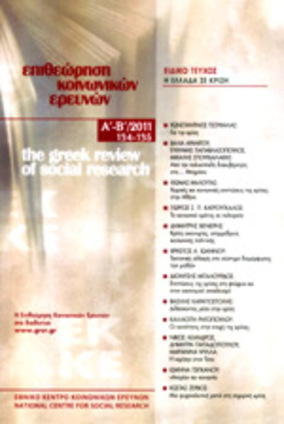Comparative patterns of elite recruitment : Israel, Egypt, Lebanon
Part of : Επιθεώρηση κοινωνικών ερευνών ; Vol.38, 1980, pages 147-163
Issue:
Pages:
147-163
Section Title:
Articles
Abstract:
Part one of this paper is devoted to a genera! critique of elitestudies. Attention is called to theoretical and methodological shortcomings,as well as to the paucity in comparative elite analysis whichis thought of as the most promising avenue of development in elitetheory. The paper then proceeds to study cross nationally approximately400 ministerial elites in Israel, Egypt, and Lebanon by the useof factor analytic and path analytic techniques. Specifically, twohypotheses have been tested comparatively: III Societal characteristics.values and aspirations tend to be reflected in recruitmentpatterns, thereby shaping the collective profile of the elite; and(2| Salient social background characteristics—of ministers—socializationaland associational—influence tenure in cabinet office.In hypothesis 2, tenure in high office is treated as the focal point ofthe elite circulation process. Tenure is conceived of as a dynamic andtheoretically potent variable. It is posited that tenure in cabinet is influencedby psychological attributes of leaders, as well as by systemicand situational variables which include the associational determinantsfound in the social backgrounds of ministerial elites.To test hypothesis 2, the tri-country recruitment data was used todevelop causal models based on standardized regression coefficients.It was discovered that tenure was significantly (46%—57% influencedby social background characteristics in the three countries.The path models further suggested that longevity in high office maybe more strongly influenced by a leader’s associational affiliation(social background) rather than personal attributes.A methodological discussion of the equivalence problem and suggestionsfor further comparative elite research conclude the paper.
Subject:
Subject (LC):




